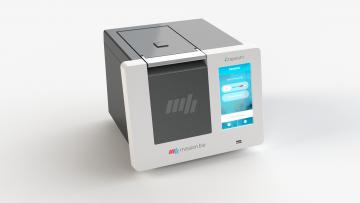The key to treating one of the world’s deadliest cancers may be found in DNA. That’s the latest from Mission Bio, a leading life science company, which today announced that its Tapestri Platform has been successfully used to identify disease-driving clones in multiple myeloma (MM).
MM has long been the focus of precision therapy development. But new data from Mission Bio suggests that a technology known as single-cell multi-omics can help better identify MM and inform treatment.
A breakthrough in the treatment of MM
Recently, MM data generated from a proof-of-concept project using the Tapestri Platform was presented at the 13th World Clinical Biomarkers & CDx Summit and the 20th International Myeloma Society Annual Meeting and Exposition.
Todd Druley, MD, PhD, Chief Medical Officer of Mission Bio, and Adam Sciambi, PhD, co-founder and Chief Technology Officer at Mission Bio, presented the data generated by Hervé Avet-Loiseau, MD, PhD from The Cancer Research Center of Toulouse and Genentech’s Director of Translational Medicine, Cedric Dos Santos, PhD.
In the project, the Tapestri Platform was used to, “characterize the clonal architecture of multiple MM patient samples by single nucleotide variants (SNVs), copy number variants (CNVs), and surface immunophenotypes — marrying flow cytometry and bulk next-generation sequencing (NGS), but offering single-cell resolution.”
The data demonstrated how the Cancer Research Center of Toulouse and Genentech had utilized Tapestri to, “move beyond a binary ‘yes/no’ answer to the presence or absence of disease,” and “provide researchers and clinicians with critical information about MM disease progression and offer actionable personalized therapeutic target information that could enhance patient outcomes.”
Simply put, Tapestri goes beyond basic disease detection and offers detailed insights into MM’s progression and potential personalized treatment paths.
This application of the Tapestri tool builds on the company’s launch of its scMRD AML Multiomics Assay, with which clinician researchers from Memorial Sloan Kettering Cancer Center and Erasmus MC used Tapestri to identify relapse and recurrence in AML.
Read more













